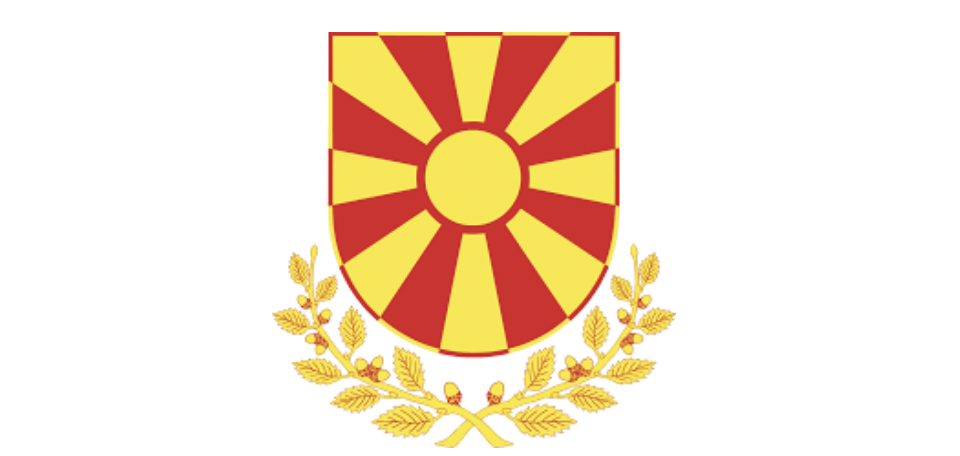The first round of the presidential elections in Macedonia was marked by voter apathy reflected in the low turnout. In a way, the April 19th vote was the second time Macedonians rejected the Prespa Agreement. Macedonians first rejected the Prespa Agreement in 2018, when the referendum for constitutional changes failed due to insufficient turnout – de facto invalidating its results. And secondly, SDSM candidate Pendarovski, who ardently supports the Prespa Agreement, lost almost 100,000 votes compared to SDSM’s convincing victory in the 2017 local elections. The first round was such a disappointment for the governing coalition that Prime Minister Zaev promised a large-scale governmental reshuffle briefly after the elections.
With the runoff quickly approaching, both VMRO-DPMNE and SDSM predict that their candidate will win, and most analysts agree that Sunday’s election will be a close one. Although the presidency is largely a ceremonial post, its outcome could have important bearings for Macedonian politics in the next five years and beyond.
There are three possible scenarios from Sunday’s election: victory by either Pendarovski or Siljanovska-Davkova, or alternatively, a failure to reach the 40% voter turnout threshold necessary to validate the results. We examine these three eventualities and predict what we might expect in each case.
Scenario 1: Pendarovski Wins
Pendarovski, a consensus candidate supported by both SDSM and DUI, is a well-known figure in Macedonian political circles. A political scientist by training, Pendarovski is a former national security advisor and ex-presidential candidate. The narrative surrounding his candidacy has emphasized Pendarovski’s independent standing and his apparent non-partisanship. His campaign promotes dialogue between the political parties, and Pendarovski himself pledged to work on creating compromises that transcend ideological lines. In reality, he is closely intertwined with the governing coalition, and his positions align perfectly to those of SDSM and DUI. What might his potential victory mean for Macedonian politics?
For starters, it is likely that Pendarovski will tow SDSM’s party line. After all, as former national security advisor and current national coordinator for NATO accession, Pendarovski was the obvious choice for the social democrats. If elected, Pendarovski will likely conform to the policies of the governing coalition, and transform the presidency from a current bastion of opposition under Ivanov into an extension of the prime minister’s office. His victory will reverse the current no-signing-of-laws policy practiced by Ivanov, who has refused to approve laws that contain the name North Macedonia.
Like SDSM and DUI, Pendarovski has been a vocal supporter of the Prespa agreement. He argued that its provisions achieved two goals: first, they protected the Macedonian language, culture and civilizational beliefs, and second, they build the basis for long-lasting cooperation with Greece. He pledged to support the agreement’s full implementation and to work on maintaining positive relationship with Macedonia’s neighbors, including Greece.
Furthermore, the consensus candidate status that SDSM and DUI bestowed upon Pendarovski necessitates that his policies appease the Albanian voting bloc. One way Pendarovski has sought to live up to this status is by promising a cabinet that entirely reflects the multiethnic character of the country. If elected, Pendarovski will likely be under pressure from the Albanian camp to enhance Albanian’s role in the presidential cabinet.
On foreign policy Pendarovski also will tow the party line. He is a staunch supporter of Macedonia’s EU and NATO integration, and he views the United States as a key strategic partner of the country. Lastly, on the question of diaspora relations Pendarovski prioritizes two goals: creating incentives for investment by Macedonians living abroad, and encouraging young students who completed their education abroad to return to the country.
Scenario 2: Siljanovska-Davkova Wins
Although Siljanovska-Davkova shares a right-leaning political outlook with the party that nominated her, VMRO-DPMNE, in many key respects she represents a departure from the traditional party line. She appears more pragmatic compared to Ivanov, and her potential victory is likely to have some transformative effects on Macedonian society.
For example, Siljanovska-Davkova is the first female presidential candidate to make it to the runoff vote. Experience from other countries suggests that electing a female candidate to the presidency can increase the robustness and quality of a country’s democracy. Studies show that electing a female head of state has positive spillover effects in democratic societies, such as electing higher number of female legislators down the road. Siljanovska-Davkova has been upfront about this potentiality: she has repeatedly stressed the need to increase women’s role in society, and pledged to include a number of qualified women in her cabinet. As commander of the armed forces, Siljanovska-Davkova promised to create a Center of Excellence for Women, Peace and Security which will aim toward expanding women’s contribution in the military. All in all, electing a woman president will likely have some transformative effects on perceptions about leadership roles for women in Macedonian society.
Siljanovska-Davkova has also been a staunch opponent of the Prespa Agreement. She holds that enacting the agreement violated national law and is disputable within international law framework. Not only has Siljanovska-Davkova refused to use the adjective North to refer to Macedonia’s name, but she also vowed to contest the agreement before the International Court of Justice. Although she promised not to cancel the accord, she considers the issue to be legally open.
When it comes to domestic politics, Siljanovska-Davkova has put significant emphasis on the rule of law. This is unsurprising considering her background in legal studies. Her campaign stresses the rule of law as the precursor to a functioning meritocracy. Siljanovska-Davkova believes that the current constitution is the Achilles heel of Macedonian democracy, and has inconsistencies and flaws linked to fundamental rights and constitutional protections. She pledged to form a team of constitutional experts tasked with finding flaws with the existing constitution and proposing new amendments.
On foreign policy, Siljanovska-Davkova is a proponent of westward integration and wants to see Macedonia closer to the EU and NATO. Finally, she has maintained positive relationship with the Macedonian diaspora, and she vowed to create a National Council for Cooperation with the Diaspora.
Scenario 3: Failure to reach 40% turnout
The third scenario following Sunday’s election is a failure to reach 40% turnout, the constitutional requirement for considering the outcome legally binding. In this eventuality, a new presidential election could be called, or the speaker of Parliament, Talat Xhaferi, could temporarily assume the presidency.
The latter of the two alternatives is by far the most spine-chilling outcome because of the miscreant behavior that characterizes Xhaferi’s political life. For one, Xhaferi was army deserter who joined the terrorist structure that fought in the ethnic conflict in 2001 under the name commander Forino. Following the Ohrid Framework Agreement Xhaferi received amnesty and was able once more to return to his political ambitions.
On top of this, Xhaferi has shown utter disregard for the rule of law by circumventing existing legal limitations on his powers as speaker of Parliament. His very election was marred with irregularities and disrespect for standard parliamentary procedures. If Xhaferi assumes the presidency, his activities could seriously jeopardize the already fragile state of the Macedonian democracy.
Conclusion
No matter the outcome of the election, Macedonia will continue its westward journey in the next five years. The domestic implications, however, are likely to be more substantial depending on who wins the public’s support on Sunday. Whereas Pendarovski’s election is likely to be a continuation of the status quo in Macedonian politics, Siljanovska-Davkova has a potential to bring significant societal transformation to the fore.
—
The views of the author may not necessarily reflect the views of the United Macedonian Diaspora and Generation M.

